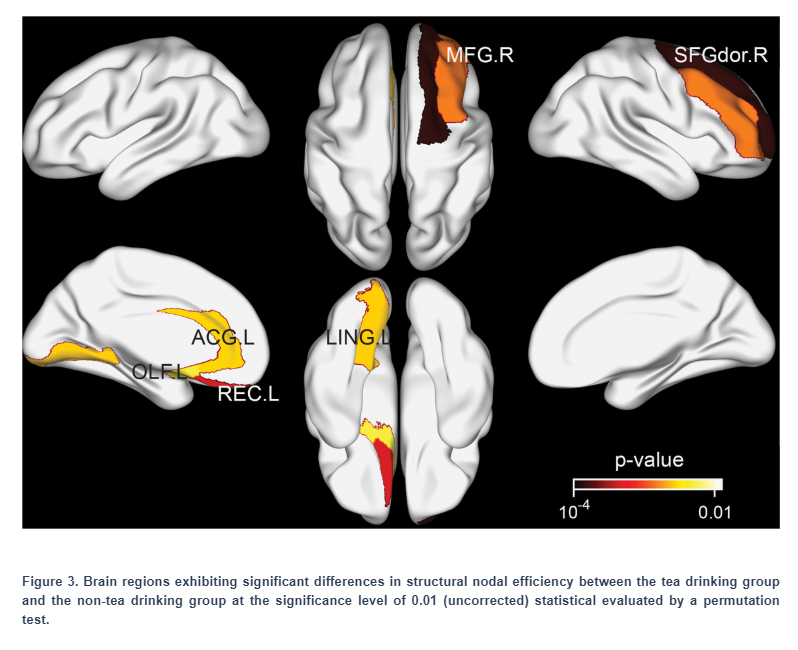
Regular tea drinkers have better organized brain regions—something associated with healthy cognitive function—compared to non-tea drinkers, according to new research.
“Our results offer the first evidence of positive contribution of tea drinking to brain structure, and suggest that drinking tea regularly has a protective effect against age-related decline in brain organization,” explains Feng Lei, an assistant professor in the psychological medicine department at the Yong Loo Lin School of Medicine at the National University of Singapore.
Past studies have demonstrated that tea intake is beneficial to human health, and the positive effects include mood improvement and cardiovascular disease prevention. In fact, results of a 2017 longitudinal study that Feng led showed that daily consumption of tea can reduce the risk of cognitive decline in older persons by 50%.
Following this discovery, Feng and his team further explored the direct effect of tea on brain networks.
Upon analyzing the participants’ cognitive performance and imaging results, the research team found that individuals who consumed either green tea, oolong tea, or black tea at least four times a week for about 25 years had brain regions that were interconnected in a more efficient way.
“Take the analogy of road traffic as an example—consider brain regions as destinations, while the connections between brain regions are roads. When a road system is better organized, the movement of vehicles and passengers is more efficient and uses less resources. Similarly, when the connections between brain regions are more structured, information processing can be performed more efficiently,” explains Feng.
“We have shown in our previous studies that tea drinkers had better cognitive function as compared to non-tea drinkers. Our current results relating to brain network indirectly support our previous findings by showing that the positive effects of regular tea drinking are the result of improved brain organization brought about by preventing disruption to interregional connections,” he says.
https://www.weforum.org/agenda/2019/09/tea-protection-against-brain-decline
